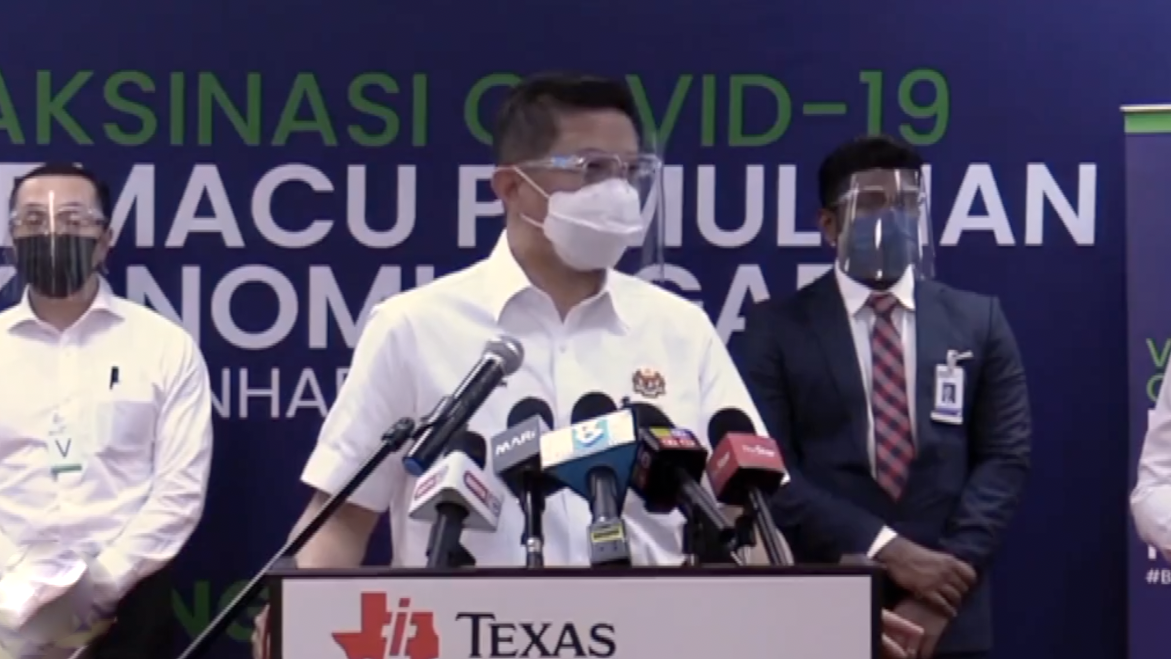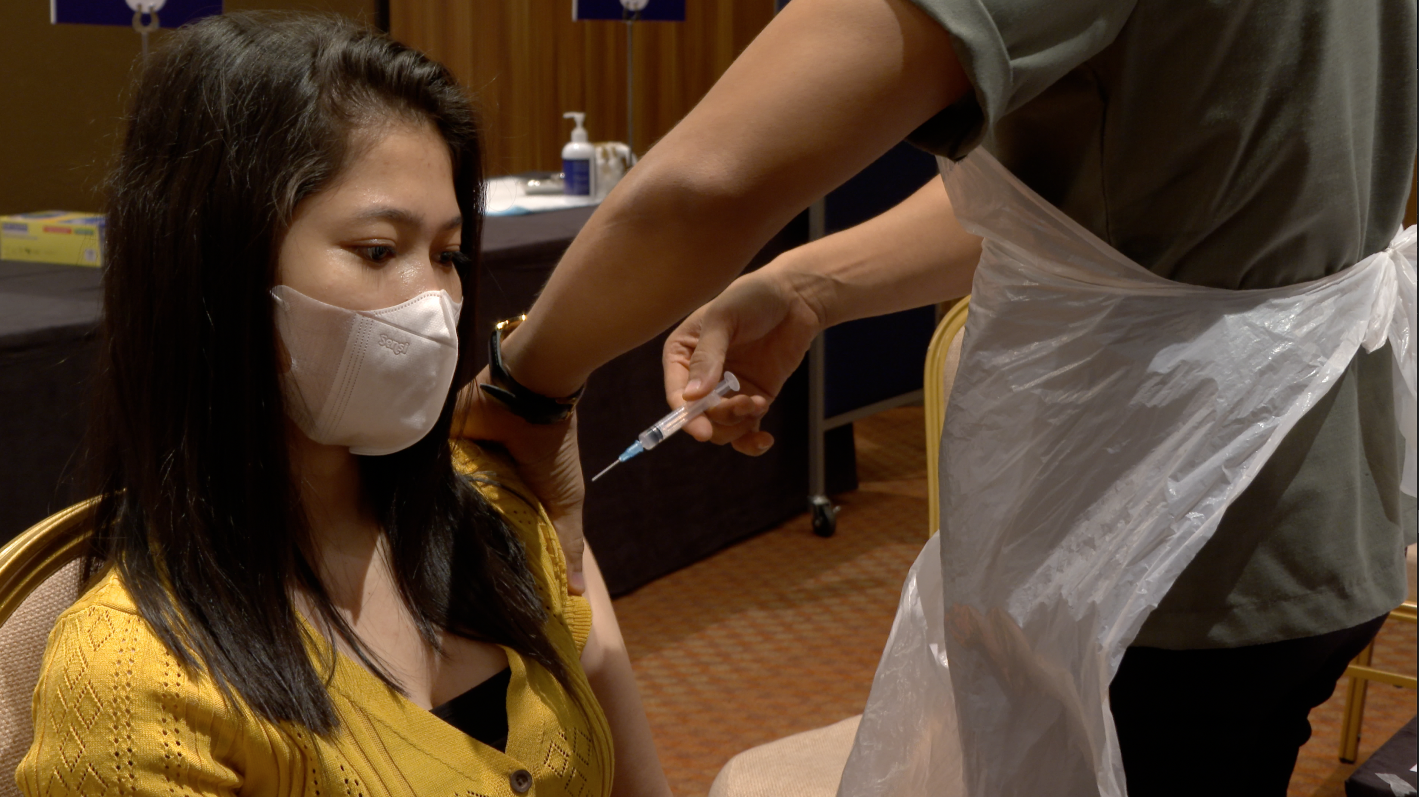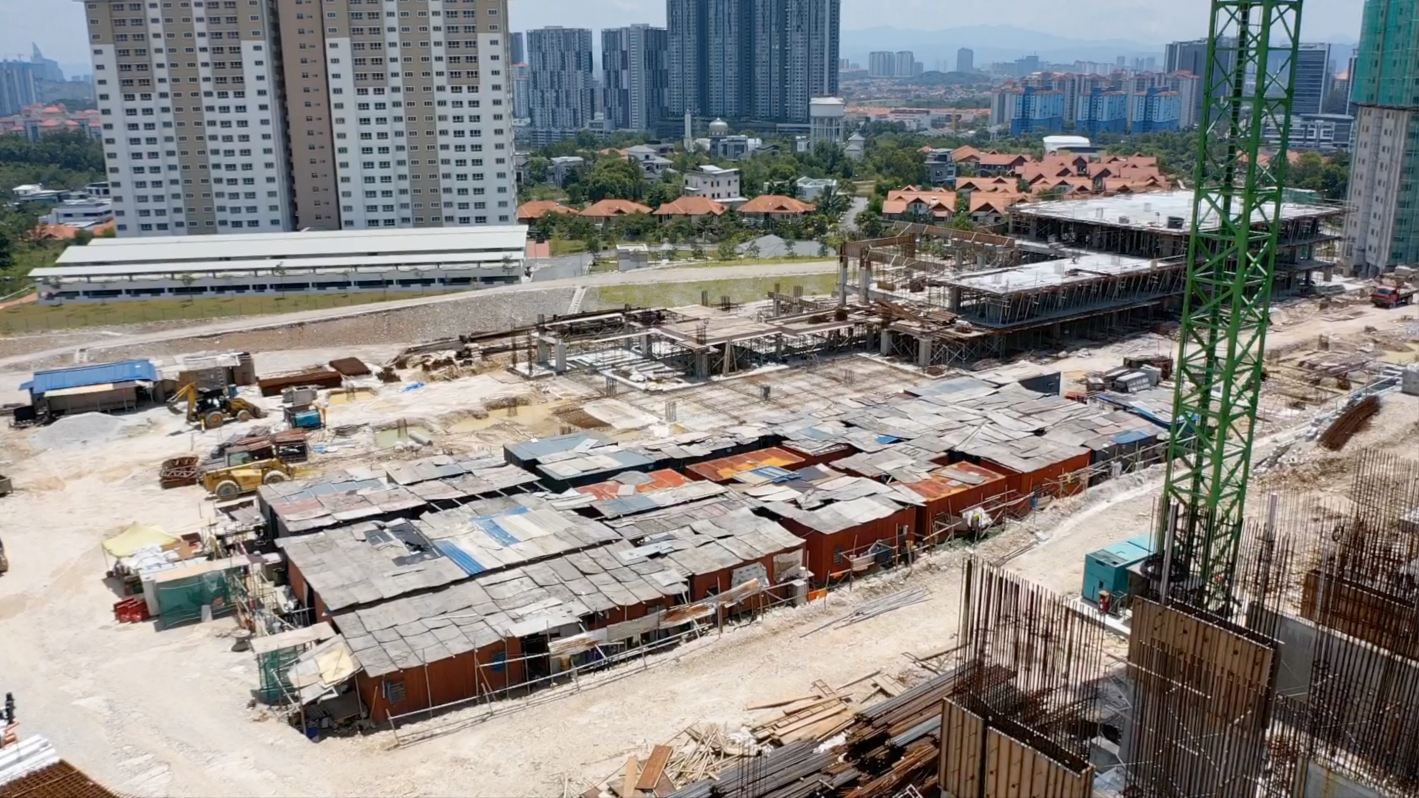02:04

The vaccination center, in a gleaming new convention hall about 30 kilometers from Kuala Lumpur, is close to a dense industrial area that saw Malaysia's largest COVID-19 cluster – thousands of cases at the world's biggest maker of disposable rubber gloves.
Migrant foreign workers make up the vast bulk of the workforce in the country's manufacturing and construction sectors, which have spawned the most clusters of COVID-19. In recent months, most new cases have been due to sporadic spread in the community. But every day lately, one fifth to one quarter of the cases have been foreigners, who only make up about one tenth of the population.
So the federal government has launched a public-private partnership under which companies in key industries can get their workers vaccinated. They only have to pay a modest fee for each employee to offset administration costs, while the government provides the vaccines from China's Sinovac free of charge.
As a result, foreign workers are starting to get vaccinated well ahead of when they might have expected, while millions of Malaysians are still waiting for their shots.

A migrant worker gets a COVID-19 jab, Selangor, Malaysia. Rian Maelzer/CGTN
A migrant worker gets a COVID-19 jab, Selangor, Malaysia. Rian Maelzer/CGTN
For migrant workers living together in crowded and often substandard hostels or even makeshift shacks, the specter of COVID-19 always looming nearby, it's a huge relief.
"I'm feeling very happy," says Novika, an Indonesian woman who started working at a nearby electronics factory. "Having been vaccinated, we can feel a bit protected. Before we got the vaccine we were always frightened."
"I feel I don't need to be so scared like I was before I had the vaccine," says Windi Aulia, another Indonesian woman from the same factory.
Unlike the national vaccination program, which is run by the Ministry of Science and Technology, this public-private partnership is run by the Ministry of International Trade and Industry.
"I believe this program can address the problem of clusters in the workplace including in the manufacturing sector, as one of the steps to be taken for the future of the country and the safety of industry," Trade Minister Azmin Ali says at the program's launch.
The country's most industrialized state, Selangor – which is also the state with by far the largest number of daily coronavirus cases – has gone a step further.

Foreign workers live in crowded, often makeshift accommodations, Kuala Lumpur, Malaysia. Rian Maelzer/CGTN
Foreign workers live in crowded, often makeshift accommodations, Kuala Lumpur, Malaysia. Rian Maelzer/CGTN
Selangor state government has become the first entity in Malaysia to be given approval to effectively sell the COVID-19 vaccines. For a fee reported to be about $100, companies can opt to effectively jump the queue and buy the vaccines for their employees. This program also exclusively uses the vaccines from China's Sinovac.
"The response is so tremendous and overwhelming by the private sector," Selangor state chief minister Amirudin Shari says at a press conference. "I understand, the industry understands if they have to close due to COVID-19, the losses incurred will be greater. Because of that, they are fine with spending some of their income to ensure the sustainability of their business."
The federal government has also just started vaccinating workers in the construction industry, another sector mostly staffed by foreign migrants, and that has seen big clusters of infection.
Meanwhile, millions of Malaysians keep anxiously checking a government app hoping to find that they've been given an appointment.
The pace of vaccination ramped up sharply in June as supply of the three approved vaccines – from Sinovac, Pfizer-BioNTech and AstraZeneca – increased, and will speed up even more this month. Around 18 percent of Malaysians have had at least one shot of a vaccine, with seven percent fully vaccinated.
After cases surged to record levels at the end of May and with the health system under severe strain, the government imposed the strictest lockdown the country has experience since April 2020. It has just tightened those restrictions further in numerous areas of the capital and surrounding state of Selangor after numbers barely dipped, then started to rise again.
The government is clearly recognizing that Malaysians won't be safe from the threat of COVID-19 – and this endless cycle of lockdowns won't end – until the foreign migrants living and working in their midst are also vaccinated.
(Cover: Some Selangor companies are willing to buy COVID-19 vaccines for their staffs and encourage them to get vaccinations, Selangor, Malaysia, June 30, 2021. Rian Maelzer/CGTN)

